How to upgrade solar panels? With the increasing emphasis on renewable energy, more and more homeowners are considering solar as an efficient way to power their homes. If you’re one of them, or if you’ve already adopted solar panels but want to upgrade them for better performance – then you have landed in the right place!
Upgrading your solar panels is as easy as pie! First, evaluate your current energy needs. Then, consult with a solar professional to identify the right type of panels for you. Finally, sit back as they install the new, shiny, sun-loving panels! Voila, your solar upgrade is complete!
From optimal efficiency trends to attractive government incentives – we will take an in-depth look at all available options so that you can make the most of your investment and further benefit from your environmental commitment by using cleaner, renewable sources of energy.
Understand the Basics of Solar Energy and Panels
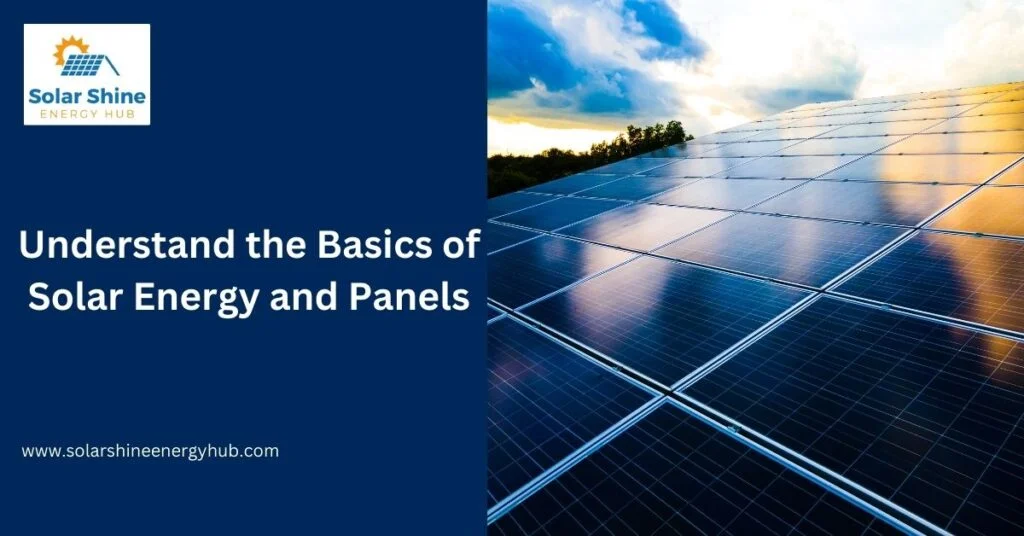
- Solar energy is a renewable, abundant source of power, harnessing the sun’s rays to generate electricity for homes and businesses.
- Solar panels, comprised of photovoltaic cells, convert sunlight directly into electricity, reducing reliance on traditional energy sources.
- Upgrading solar panels can lead to increased energy efficiency, potentially lowering energy bills and reducing carbon footprints.
- Government incentives and subsidies make solar panel upgrades an increasingly attractive investment for homeowners.
- Consultation with a solar professional is an essential step in the upgrade process, ensuring the new system meets specific energy needs.
Examine your current solar panel
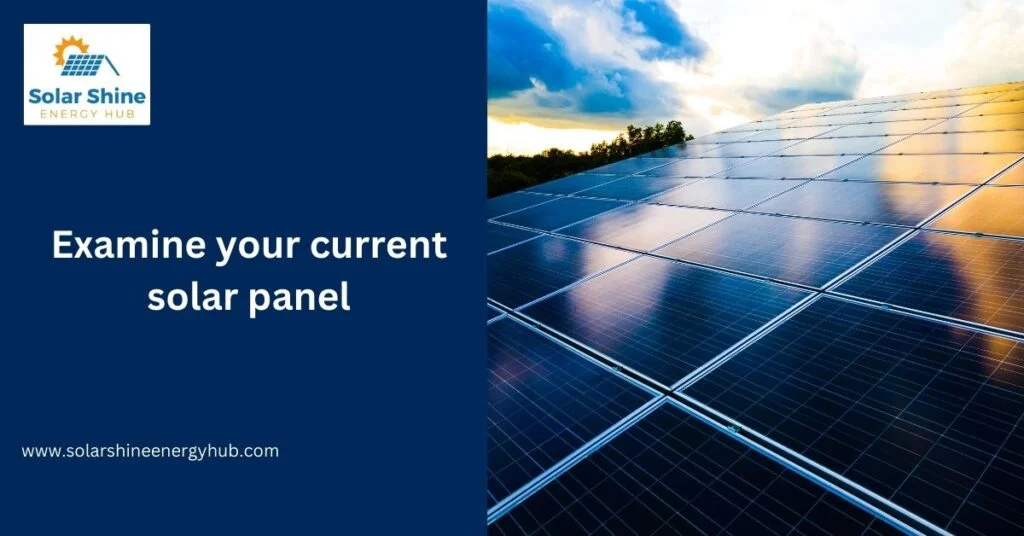
- Identifying the current performance of your solar panel is crucial; check for any physical damages or dust accumulation that might be affecting its efficiency.
- Compare your electricity bill before and after the installation of solar panels to assess the panels’ effectiveness.
- Determine the age of your solar panel as older models might not be as efficient as newer ones, necessitating an upgrade.
- Evaluate any changes in your energy consumption, such as the addition of new electrical appliances, which may require a solar panel with a higher capacity.
- Inspect the placement and angle of your solar panel as incorrect positioning can lead to reduced sunlight absorption and, thus, lower energy production.
Research Upgrading Options
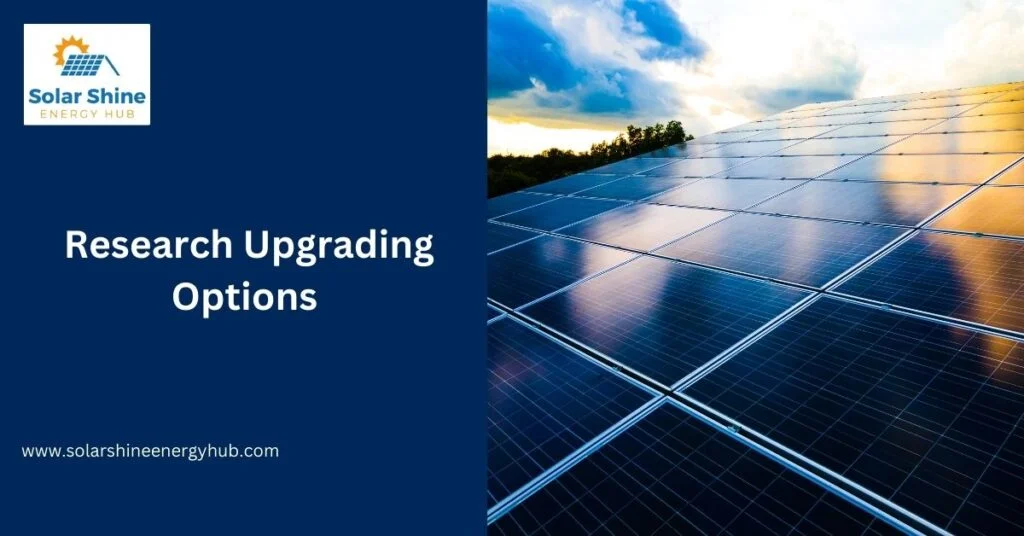
- Explore various solar panel models on the market, focusing on their efficiency, capacity, and technological advancements.
- Consult with solar energy professionals to understand the potential benefits and drawbacks of different upgrade options.
- Consider the cost-effectiveness of the upgrade, taking into account potential energy savings and available government incentives or subsidies.
- Evaluate the physical attributes of your home, such as roof space and exposure to sunlight, to determine the optimal solar panel design and configuration.
- Think about potential future changes in your energy needs, and choose a solar panel system that can accommodate growth.
Consider Maintenance-Related Upgrades
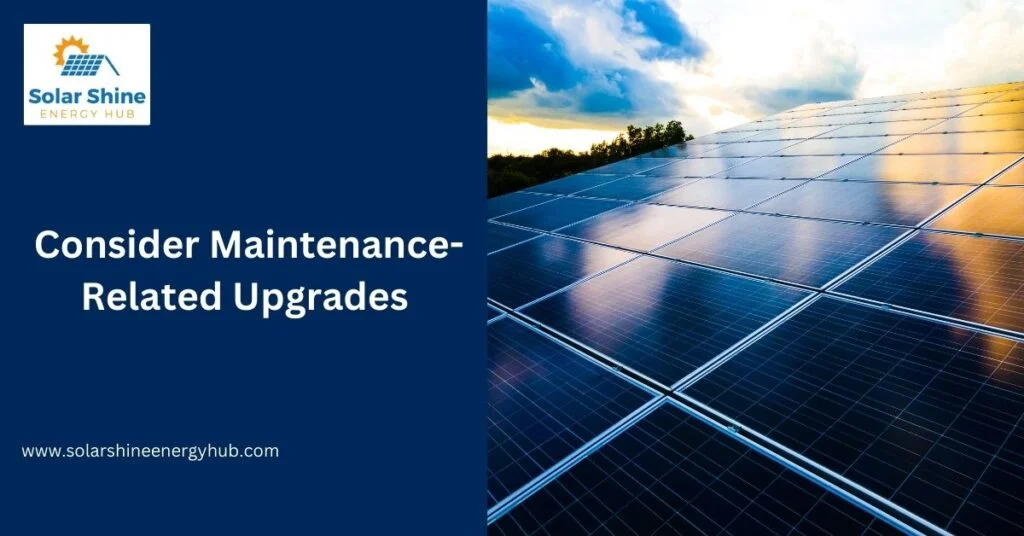
- Regular cleaning and check-ups can extend the life of your solar panels and improve their efficiency.
- Consider investing in monitoring systems that track solar panel performance and alert you to potential issues.
- Protective coatings and bird guards can be beneficial upgrades to safeguard your solar panels against weather elements and pest damage.
- Lastly, consider upgrading to solar panels with an integrated inverter system for easier maintenance and better efficiency.
Consider Add-Ons to Increase Efficiency
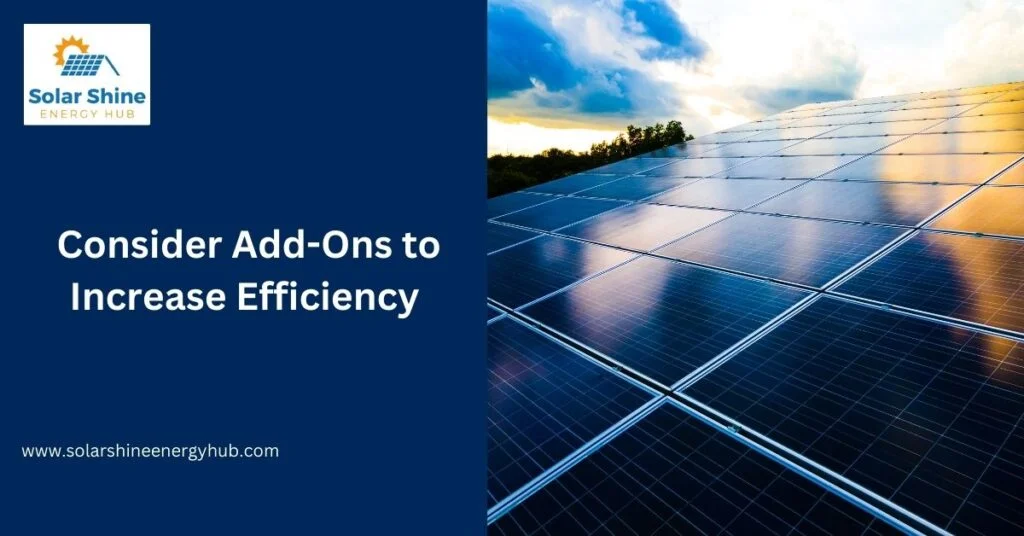
- Solar batteries can be added to store excess power for use during nighttime or cloudy days.
- Incorporate a solar hot water system to leverage solar energy for heating purposes.
- Consider solar-powered ventilation systems to cool your home without straining your panels.
- Solar panel optimizers can help to maximize the efficiency of each panel.
Evaluate the Costs of Upgrading Your Solar Panels
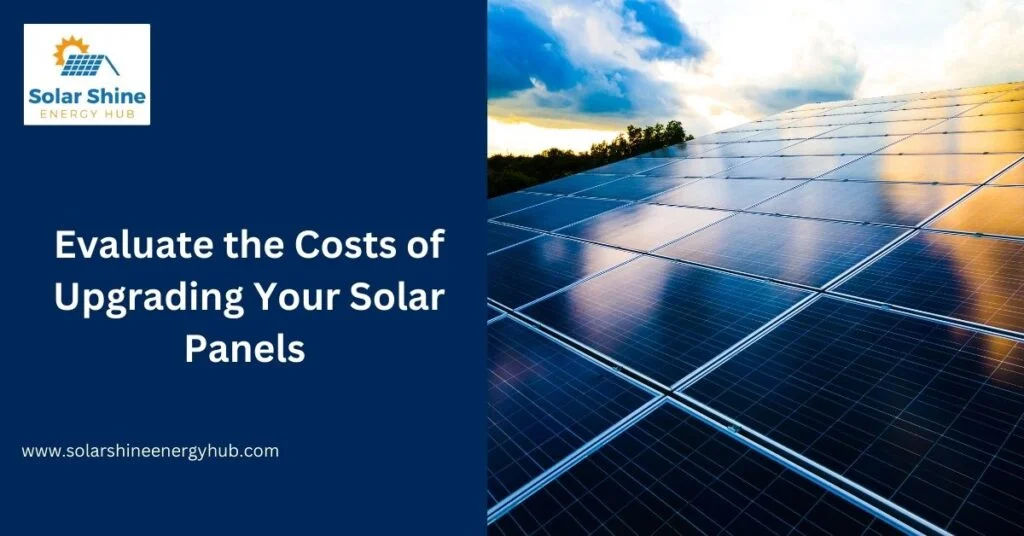
- Upgrading to high-efficiency solar panels can enhance energy production and result in long-term cost savings, although initial costs can range from $3,000 to $10,000.
- Integrating a solar battery storage system, costing approximately $5,500 to $7,000, enables homeowners to utilize solar power during off-peak hours.
- Investing in a solar hot water system, typically costing between $3,000 and $7,000, can further reduce electricity bills by using solar energy for heating.
- Incorporating solar-powered ventilation systems, which can cost around $300 to $600, can help cool homes without overstraining the panels.
Seek Professional Assistance if Necessary
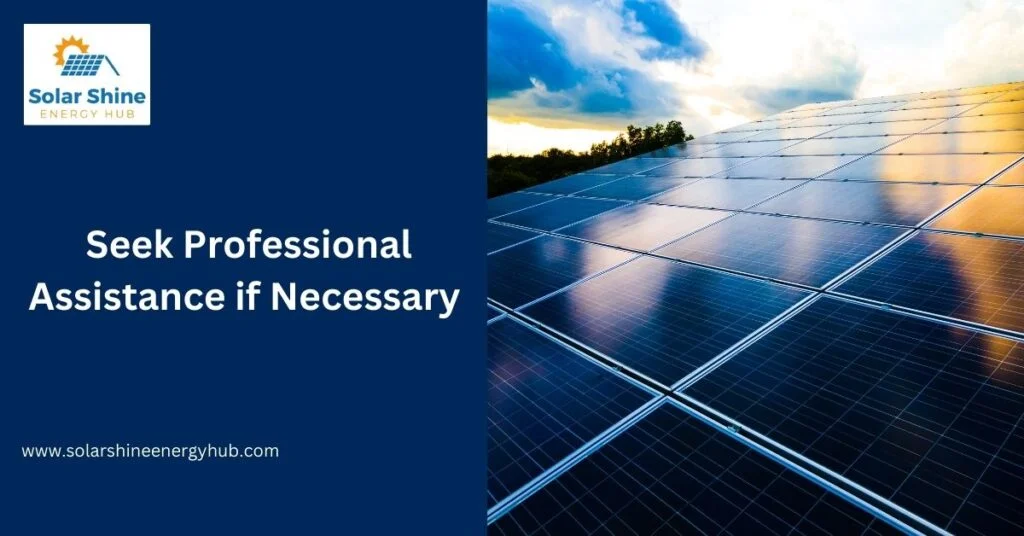
- If you lack the technical expertise or encounter complex issues, professional help is advised.
- Reputable solar panel companies often provide maintenance and upgrade services.
- They can evaluate your system, identify areas of improvement, and execute the necessary upgrades.
- Engaging a professional ensures the longevity and efficiency of your solar panels.
Prepare for Installation and Monitor Results
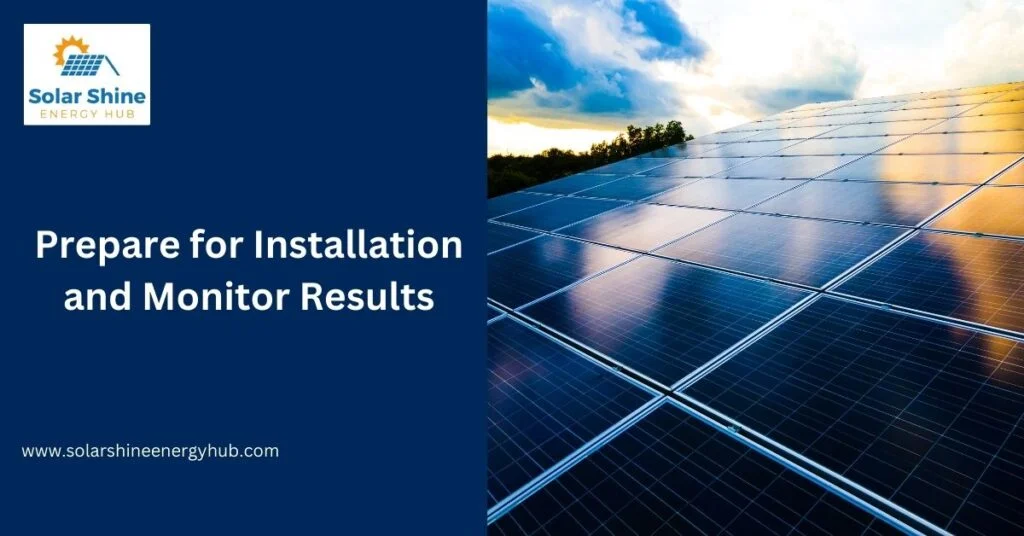
- Installation of upgraded solar panels involves careful planning and preparation to ensure optimal positioning and connection.
- Once installed, consistent monitoring of the system’s performance is key to verifying the effectiveness of the upgrades.
- Regular system checks can help detect potential issues early, enabling timely troubleshooting and maintenance.
- Remember, the ultimate goal of these upgrades is to maximize the efficiency of your solar power system, leading to cleaner energy use and considerable savings in the long run.
Conclusion How to upgrade solar panels
Embracing solar energy not only brings you significant savings but also supports a crucial societal shift towards sustainable energy. An efficient and well-maintained solar power system is a long-term investment offering substantial returns. As you embark on this journey, remember that professional assistance can help ensure optimal performance and longevity of your system. Make the switch today, and enjoy the benefits of cleaner energy. After all, the sun is the most abundant energy source we have – so let’s harness it for a brighter future!
FAQS
Q.01. How can solar panels be improved?
Q.02. Increasing solar panel efficiency with mirrors?
Q.03. How to increase solar panel efficiency?
Regular Cleaning and Maintenance: Keeping your solar panels clean and well-maintained is crucial for optimal performance. Dust, debris, and other dirt can accumulate on the surface of your panels, reducing their efficiency. It is recommended to schedule routine cleaning at least once a year.
Upgrading to High-Efficiency Panels: As technology advances, solar panels are becoming more and more efficient. If you have been using older or lower-quality panels, consider upgrading to newer models with higher efficiency rates.